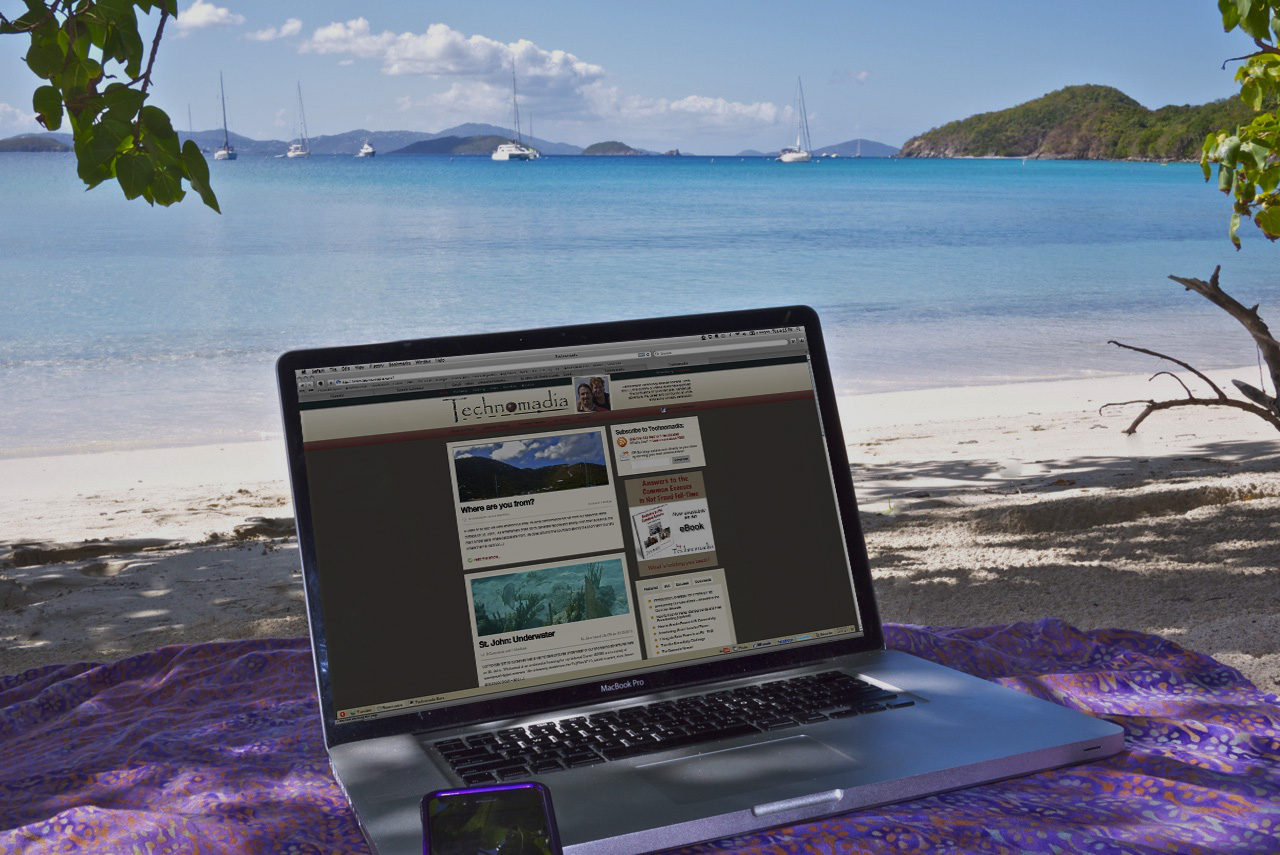
Many people have dreams of long term travel, something that is more than the typical 1-2 week vacation a couple times a year (or every couple of years!).
They crave a slower pace to more fully immerse themselves in different cultures and experiences. More opportunity to enjoy quality time with far flung friends and family. A chance for ever broadening horizons, not constrained by a “back to work” deadline.
That sort of long term travel is generally thought of as reserved for:
- Retirement — when life savings, pensions and social security can cover the expenses, and one has completed a career and put that phase of life behind them.
- Before career – fresh out of school before one commits to a career and family, taking a few months or years to explore the world.
- In between careers – when a current careers is no longer rewarding, quit, take off and travel for a while before re-entering the workforce.
Essentially, extended travel is often to the exclusion of work or career. It’s something you do after you’ve ended a career, or in-between phases of life.
And there’s absolutely nothing wrong with these approaches. Taking time in-between life chapters, and focusing on travel, can give one very deep insights into themselves and the world. Valuable stuff.
But what if now is when you want to travel, not some distant post-retirement future when your health and physical capabilities may no longer be up for the experience?
What if a year just isn’t enough to experience the world?
There is another option.
Combining Career and Travel
Not many of us are in a position to entirely quit the workforce, retire early and sustain our desired lifestyle. Some of us actually enjoy working, embrace our careers, and aren’t itching to escape them. And others, despite vigilant financial planning, haven’t been able to acquire enough savings to travel without some sort of supplemental income.
Our generation, Gen-X, in particular was brought up believing that social security likely wouldn’t be around by the time we reach a traditional retirement age. The old concept of retirement just doesn’t play into many of our generation’s long term plans. Some of us are pursuing a sustainable work/life balance that can last our entire life. We’d rather fully enjoy our lives now, instead of putting off our dreams for some future that may not exist for us.
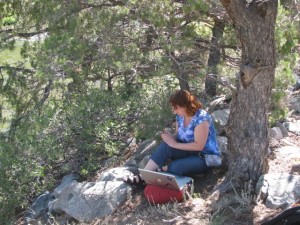 There are certainly many careers that are not apt to a full time traveling lifestyle. For those passionate about such a career path, that is reason enough to put off full-time travel. In the meantime, find ways to integrate in purposeful travel into your vacation time, sabbaticals, and/or by creatively extending business related trips.
There are certainly many careers that are not apt to a full time traveling lifestyle. For those passionate about such a career path, that is reason enough to put off full-time travel. In the meantime, find ways to integrate in purposeful travel into your vacation time, sabbaticals, and/or by creatively extending business related trips.
You might be surprised at how much flexibility you actually have – many part-time nomads manage to negotiate time-off (without pay) to turn the typical two week American vacation into two or more months off each year. You never know until you ask, or sometimes issue an ultimatum.
But if you’re not on a stationary career track that inspires you, and travel is calling you louder, perhaps it’s time to explore creative ways to re-think how you might make it work.
There are generally two different ways to go about earning an income while traveling.
First, find work that naturally integrates in travel.
Or, design a ”location independent” career that involves work that can be done primarily remotely, letting you work from wherever you are.
First, here’s a video compilation of some fellow full time RVing nomads that we met up with in 2010 at a NuRVers.com Gathering – where they all talk about how they earn an income on the road:
(For individual full interviews, check out our Ramblings: Tales from Nomads interview series)
And here are some more ideas to get you thinking…
Careers with Travel Built In
A nomadic life based on following the work is nothing new at all – it’s been part of human culture since the earliest adventurers got the itch to explore the world around them.
There are many career paths that can require, or be adapted to, travel as a core component of them.
- Artists & Jewelers
- Musicians
- Seasonal Workers
- Festival Workers
- Truck Drivers
- Migrant Workers (harvests, oil fields, etc.)
- Construction and Craftsmanship
- Contract Medical Staff (nurses, doctors, technicians, etc.)
- Journalism
- Photographers
- Cruise Ship Staff
- Fishing or Boat Crewing
- Military Service
- Traveling Sales
- Therapists & Body Workers
- Hair Stylists & Cosmeticians
- Tattoo Artist
- House & Pet Sitters
- Tour Guides
- Amusement Park Staff
- Providing Services (cleaning, organizing, computer setup, handyman, etc.)
- Repair & Technician Work
- Temp Workers
- Performance Artists (balloon twisters, dancers, comedians, gymnasts, fire swallowers, etc.)
- Conference Speakers
- Trainers & Teachers
- Teaching English as a Second Language
- Volunteer Jobs (that cover some living expenses)
- Consultants & Designers
- Workamping (exchanging services for RV parking and/or pay)
Many of these career paths could utilize travel as part of the means of getting to a work site, but often may require adjusting your travel plans to meet the schedules of work obligations (military service!). You may have to strike a balance that works for you between giving up control of your schedule and destinations, and having work that actually pays you to see the world.
Other nomadic career paths allow for travel totally in your control, but you need to have faith that you can show up to a location and market yourself to find gigs.
There are some jobs (particularly in remote areas – such as oil fields, fishing or mining) that offer a rotating schedule of intense periods of work (weeks to months at a time) then lots of time off. Taking a job that involves such hard intense work for a month straight may be grueling, but it is balanced out with time off to travel extensively before you need to return.
One nomad we know has spent the past few years working the seasons in Antarctica as support staff at McMurdough Station. His long stretches spent living on the ice is balanced with seasons spent full-time on the road exploring other parts of the world.
Working Remotely
With the advent of wireless broadband, there’s a whole new class of mobile careers available. They’re digital nomads and location independent professionals – or as we prefer to call ourselves, technomads.
Some examples of careers that can be done remotely from anywhere with decent connectivity might include:
- Programmers
- Developers
- IT managers
- Database managers
- Bookkeepers / Accountants / CPAs
- Lawyers
- Personal Assistants
- Web Designers
- Writers
- Editors
- Bloggers
- Podcasters
- Photo & Videography Work
- Affiliate Sales
- Social Media Specialists
- Product Evangelists
- Bargain Hunting & Re-Selling Online
- Online Products & Stores
- Graphic Designers
- Online Professors
- Personal and Professional Coaches
- Consultants & Advisors
- Freelance Writers
- Customer Support
- Agents (travel, insurance, etc.)
- Investors / Traders
- Transcriptionists
- Translators
- Researchers / Information Providers
These are folks who can utilize technology to take the office with them untethered by ethernet cables and phone lines. Sometimes people pursuing digital nomadism have existing gigs lined up before they hit the road, and sometimes they search for remote working compatible gigs as needed by searching outsourcing job boards such as:
http://www.craigslist.org
http://www.elance.com
http://www.odesk.com
http://www.vworker.com
We’ve had friends who are IT consultants who took their lives completely mobile and actually didn’t tell their clients for months of the change. After all, who really knows (or cares) where the phone physically rings or where code is written?
The above lists certainly aren’t comprehensive of the options. It’s limited only to your creativity and passions.
What skills and interests do you have? How can you adapt your skills into a job that allows you the level of travel you desire?
Brainstorm, and don’t let anyone tell you your idea isn’t worthwhile exploring.
Entrepreneur vs Employee?
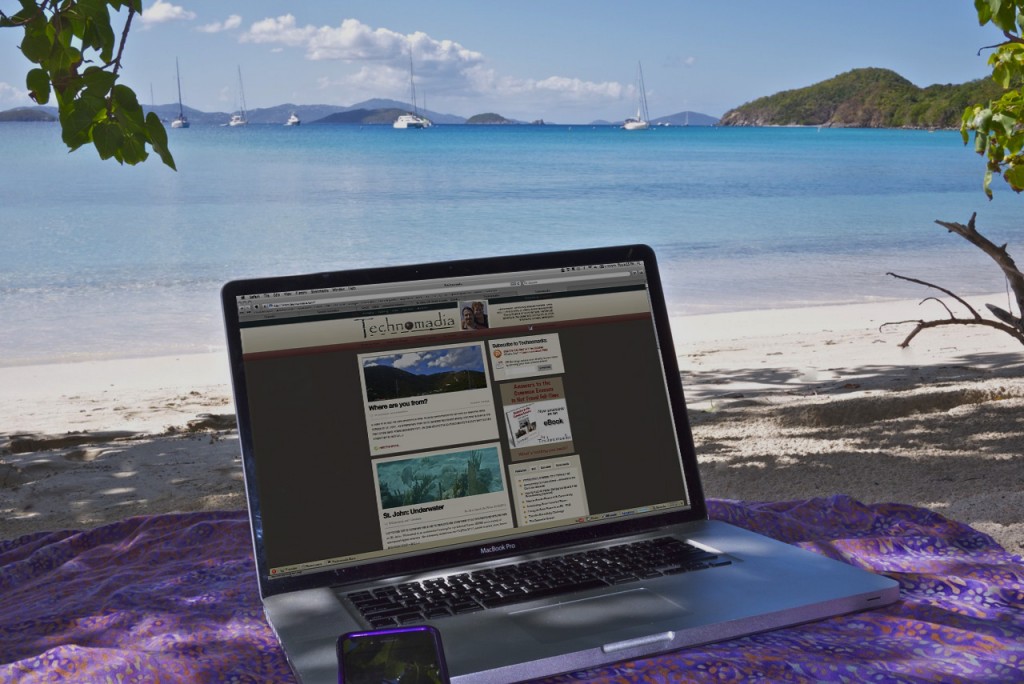
There seems to be a common misconception that to be location independent, you have to be a self-employed, freelancing, entrepreneur. This is not necessarily true. While a self-disciplined motivated individual can do quite well being self-employed in a location independent career, it’s certainly not the only way.
As the world has become more and more virtual, and the economy has forced more companies to scale back on the costs of maintaining real estate, more traditional workplaces are becoming keen on allowing their employees to transition to becoming remote teleworkers. So why not take it a step further, and work from anywhere?
Some companies have even gone entirely virtual – with no fixed office at all.
One company run by a friend of ours has employees all over the world who only ever see each other at their quarterly week-long working retreats, always held in an exotic new city so that when the team comes together they can bond by mixing work and play.
Of course, not all positions are going to be able to be done remotely, particularly factoring the uncertainties that come with working while traveling. However if you have a job that you think you could do from anywhere, you might want to consider coming up with a proposal for your boss.
Don’t expect your employer to jump right on the opportunity, and expect that you may have to prove you can do it by perhaps starting with working from home a couple days a week. It is possible however, and really all depends on how open minded your workplace is and how critical your role is to your organization. It likely won’t be an overnight transition, but if you like your current career and job but just want to do it from anywhere – think creatively on how you can make it happen.
If you are willing to negotiate a lower salary in return for fewer mandated office hours and more travel flexibility, you might be surprised as to what your bosses might agree to.
On the other hand, not working for someone as an employee is very freeing. It also means being quite disciplined and resourceful to both find work and keep your clients happy, as well as figuring out all of the logistics of running a company – paperwork, taxes, healthcare, insurance, etc.
If you’ve never run your own business before, it may be daunting to approach learning the ropes while also adapting to a fully mobile lifestyle. How much of a change you’re up for is going to vary quite a bit by person, skills and tolerance.
Working less or working smarter?
 After Timothy Ferris’ book The Four Hour Work Week came out, a bunch of folks got the notion that they could set up online businesses, outsource the bulk of the work, and only work 4 hours a week while earning a bunch of cash and playing the rest of the time.
After Timothy Ferris’ book The Four Hour Work Week came out, a bunch of folks got the notion that they could set up online businesses, outsource the bulk of the work, and only work 4 hours a week while earning a bunch of cash and playing the rest of the time.
Sure, it may be possible for some, and there’s good stuff in Tim’s book that can really help folks think differently about the role work plays in their life. Just don’t get the idea that life as a nomad is always a full time vacation. It takes a lot of work to set up and maintain a passive income stream – so much so that for most it’s really hard to call what they end up doing all that passive.
Most of the mobile working nomads we’ve encountered don’t have a life of complete leisure or a passive income stream. True, we may not be always working a typical 40+-hour work week plus commute, but we are putting in productive hours with deliverables. We just tend to do it smartly without all the wasted time that tends to come with an office life.
Many of us are working in careers that inspire us in some way, better the world and that we actually enjoy. And we’re doing it from amazing places with ever-changing amazing office views. Instead of ending our workday (or night) and coming home to the same ole routine, we have a new location waiting for us to explore!
We’ve encountered such a variety of ways people make it work – from working a fairly normal work day, to those that work in waves of intense 12-15 hour days for a few weeks then coast for months after that.
There’s no right or wrong way to do it. Just make sure it’s YOUR way.
Our Mobile Careers
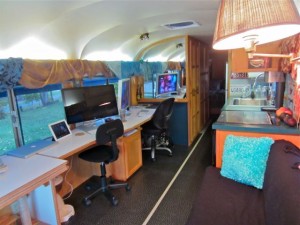 Working for ourselves, and working remotely, is the primary route that Chris and I have taken.
Working for ourselves, and working remotely, is the primary route that Chris and I have taken.
I’ve been location independent since 1994 when I started taking over my family’s software development company, running it from my beachside home in Florida. I used to tease my clients when they called that I could be working from anywhere – by the pool or the beach. Then I started taking it further.
When I needed to travel for work, I’d tack on personal days to explore, taking advantage of the majority of the travel costs having already been covered. Then I started taking longer personal trips where I integrated in a remote work day, and used my off-time to explore. It worked well, and remarkably, I found I rarely felt the desire to take a conventional dedicated vacation.
I liked the balance of travel just being a regular part of my life and having the flexibility to just go with little need for pre-planning.
And I’ve never felt like I needed to escape my career – I already built something I loved.
When I met my lifemate Chris in 2006 (who was already living as a full time nomad), it all came together for me to totally remove myself from a fixed homebase and office, and I started the process of shifting my life to become fully mobile.
Before going nomadic, Chris had a career in the mobile technology industry – most recently having worked for Palm and PalmSource as their Director of Competitive Analysis (aka ‘Chief Spy’), traveling the world to keep tabs on the entire mobile tech industry. It was truly a job too good to give up until Palm & Palm Source imploded. He had already long ago decided that this would be his last job for a big company, and his lay off propelled him to finally jump into something he always wanted to do – become a technomad.
Today, Chris and I together do various technology and strategy consulting as we travel via our partnership Two Steps Beyond LLC, mainly only taking on projects that inspire us and which are fun! I continue to work for many of my long term clients, and we’ve begun developing our own line of travel related mobile apps. We’ve also taken on several intense short term gigs that have included: advising tech start-ups, orchestrating new product launches, doing intensive market research, providing market insight to investors, selling our photography and travel videography, and writing for tech journals.
And when we have lulls in our workload, we’ve been known to take on temporary gigs outside our norm just to explore new things, such as workamping for a month at Amazon.com packing boxes during their peak holiday season.
We like to shake it up, explore new avenues of income, and most of all – have fun!
Read Chapter 2: Affording Full Time Travel —->
Resources:
A Practical Guide To Going Digital – Christine Gilbert over at AlmostFearless.com provides some amazing resources and inspiration. This eBook gives a lot of information working remotely and digitally.
25 Career Ideas to Design Your Location Independent Lifestyle – Carmen Bolanos, co-founder of NuNomad.com, put together an awesome round up of 25 mobile careers using examples of real nomads he has interviewed.
Work for RVers and Campers – Website maintained by a couple who has been full-timing for nearly 20 years and earning an income while they travel.
Digital Nomad Academy – An online program run by Cody McKibben to help those wanting to be a digital nomads set up and explore business ideas to create a mobile friendly career. Targeted to the entrepreneur minded who has yet to figure out how to make it work.
Reaching Escape Velocity – The original Technomad, Steve Roberts, shares how he used sponsors, the media, volunteers, and ”other potent forces” to enable and afford his own massively ambitious technomadic undertakings. If your planned adventures are audacious enough to draw this sort of attention, you need this book.
No Excuses: Go Nomadic
This article is part of an ongoing series answering the common excuses folks give us for why they’re not pursing their dreams of full time travel. We launched this series a few years ago as Answers to the Common Excuses – and are in the process of massively updating it. We’ll be releasing newly updated & expanded chapters over the coming months. We’ll be addressing topics like: Affording It, Family, Pets, Logistics, Healthcare, Community, Keeping Connected and more.
Read the whole series: No Excuses: Go Nomadic
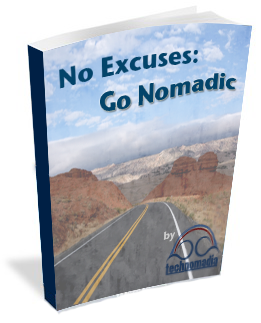
eBook version – This blog series is also available as convenient eBook. We offer this compilation on a ‘pay as you wish’ basis, and will be keeping it updated with the blog series. We don’t aim to make a living off our blog, but a little support to keep the blog going is always appreciated (buying the eBook is kinda like taking us out for a beer).
Cost: Pay As You Wish (really… just set the price!)
PDF Format


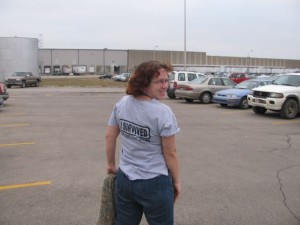
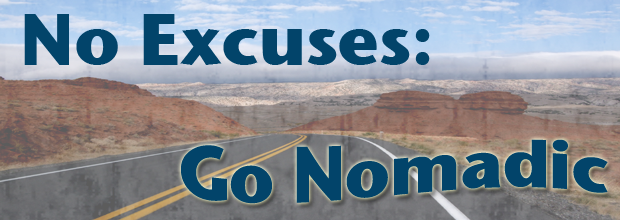
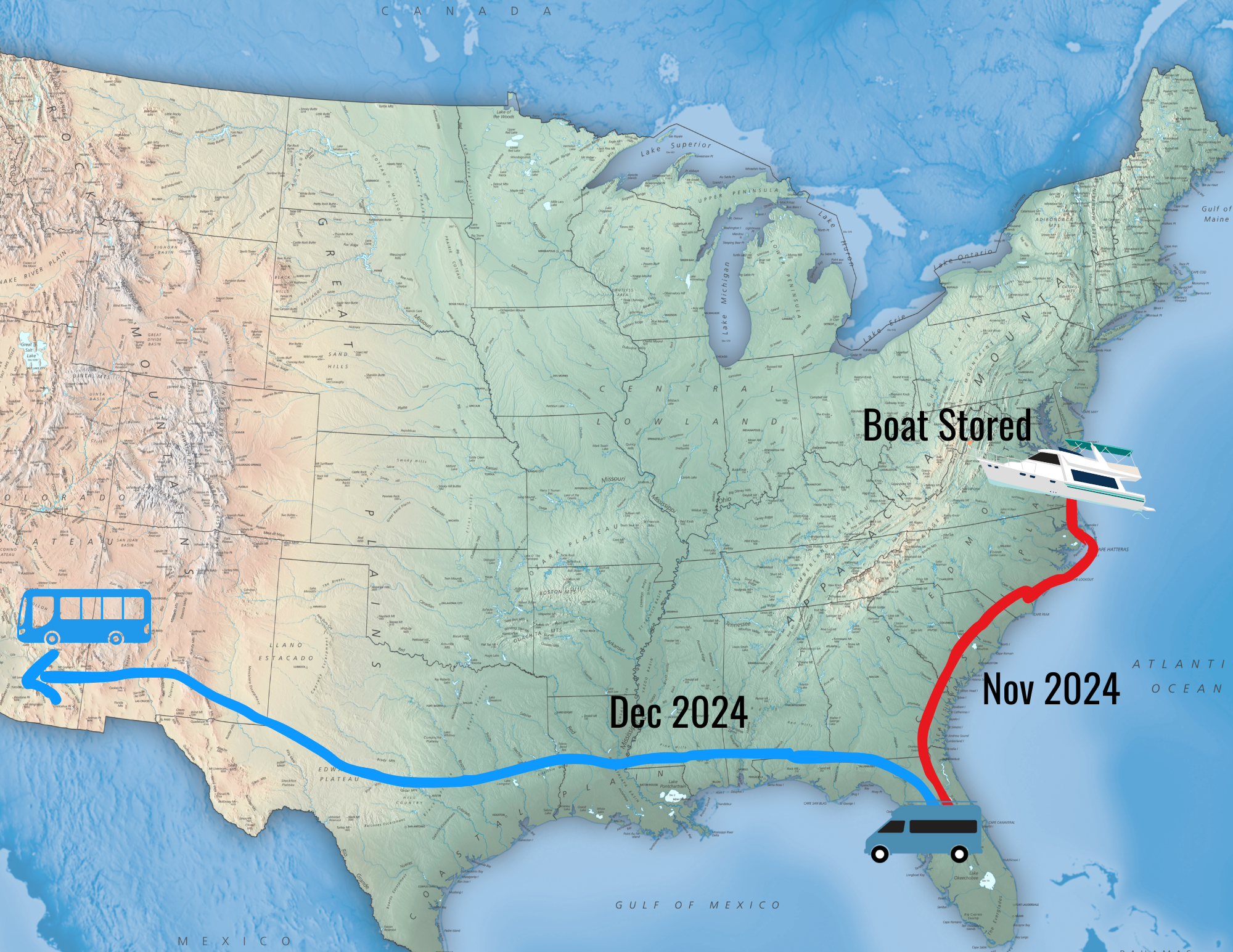
Great blog on Jobs, Careers and Income Sources for Travelers!!! Keep up the Blogs! BH
Awesome!
Fantastic indepth article guys – LOVE IT! Just shared it in our House Sitting World Facebook group to inspire our members to stop the excuses of getting out to see the world even as a volunteer House Sitter – because you have listed a ton of ways to enjoy a location independent income, literally something for everyone! Thank you so much!
http://traveltreker.blogspot.com
Hi there, a quick question and maybe it has been asked already, have you guys ever thought of counseling us newbie RV folks who are wanting to leave the rat race and hit the road but just can’t put all the pieces together? That would be my hubby and I, we would even be your guinea pigs.
sincerely, Bella
Awww… thank you. We have actually contemplated if we have room on our plate to offer such a service. But fact of the matter is, we already have full time careers. Writing for the blog, doing occasional video chats and answering some e-mails is about all the available time we can muster right now.
This is a great chapter and website! Love to see support for choosing this way of life. One major area I feel was left out of the “careers that integrate travel,” and can provide a nomadic lifestyle is field biology (yes, science!). Work is usually temporary and seasonal, so it’s a continuous employment search process, but it can take you to many locations around the world! And at times, basic housing can be provided, so more of your income can go to saving for traveling to the next work assignment. It’ll be long hours, hard work, and low(er) pay, but it’s usually in beautiful surroundings, and you’ll have a little time to explore. This makes it a truly immersive experience if it is completely embraced!
Cherie and Chris,
I truly appreciate the effort you’ve put into this site! As a geek who enjoys the outdoors almost as much as the indoors, I have often felt the same calling that I imagine most Technomads do: keep the tech, lose the desk.
Your mention of military service was of specific interest to me, as I’ve often wondered throughout my military career how I could take my “home” to new assignments. Now that I’m leaving the service and embarking on a new journey as a full-timer, I’m looking for ways to use my geek skills for income to keep the journey alive. This post has been very helpful in sparking ideas on how to do just that! Thank you for sharing your knowledge and wisdom, and may your journeys be filled with Love and Light!
– Andee
Howdy!
I came across your website while searching about Amazon’s peak selling season, since I run a small shop as an Amazon Merchant – the profits from which pay for my expenses while I’m here in Northern Uganda, volunteering full-time.
I’ve been doing similar to you for about as long, ever since I graduated. I usually find short-term, in-person contracts from city to city, but I’m starting to look into how I might more fully throw my hat into the e-work ring.
So thanks for being a solid resource! Godspeed!
Nice post. This is inspiring.
What college major would allow one to go into a techno related online any location type environment?
I’ve actually been thinking of transitioning into an I.T. field that would allow remote working.
Do you think this major would provide that opportunity?
-information systems auditing?
What top majors do you think would provide the likelihood of remote working?
(other than one having their own business which is the obvious choice)
Thanks!
Hi Paul –
Personally, I’m not a strong believer that college degrees alone are a path to success. I’m a proud college drop out myself, and have done quite well by following my interests.
Success is more dependent on self confidence, passion and a drive. A degree can help along the way especially if credentials are required, for sure. But don’t focus on the degree itself, and very few successful people I know are working in fields related to their degrees anyway (but they still have mega student debt keeping them down). Focus on finding your passion first. If a degree is required to get to where you want to be (like becoming a doctor, professor, attorney, etc.) – then consider that path.
That’s not to say stop learning.. mind you. I still take courses for fun in a wide variety of topics.. I love learning and expanding my brain. I’m just not focused on a degree.
I do mostly Work Camping; Seasonal warehouse, campgrounds and amusement park employ. Have 18 months before early SS; if it still exists. Hope to start a photography/journalism type business. May start with a web based Newsletter and do some affiliate type advertising. Any feedback on this would be appreciated. I am old school, thinking about marketing this toward the Seniors; like me. LOL!
As the discussion about carbon footprints. My Motorhome travels, involve about 2,500< miles a year. I use a bicycle and an old school moped for locale commutes. Living on the road has been exciting, adventurous, and sometimes confusing. I was downsized by the economy in 2009 and my first gig was for site only that Winter. Since then, I have located the 3 jobs mentioned above; each one has their pros and cons; IMO; and the most enjoyable moments have been meeting the vast array of people and their personalities.
Hi Ed… thanks for stopping by.
If you’re contemplating earning an income by providing electronic content and/or advertising – you’ll want to dive deep into learning things like SEO and affiliate marketing. ThinkTraffic.com, ProBlogger.com, nicholasreese.com are some of the sites that can help get you up to speed.
Cherie and Chris,
I’ve just stumbled across your website and this post is the first I’ve read.
While you seem to be both intelligent and social, I wonder whether you’ve ever attempted to calculate the environmental impact of your lifestyle, in comparison with less-mobile people?
If you’ve posted this information before, I apologize for not having searched for it more diligently.
Hi Hugh.. and welcome!
We did address this topic in this series a couple years ago at:
https://www.technomadia.com/2009/05/excuses-environmental-impact/
And we’ll be massively updating that article when when we get back to it.
But all and all, we strongly feel that our environmental impact as RVers is significantly less than it was when we lived in a traditional stationary homes. We use less power (and will soon be primarily solar powered again), use a tiny fraction of water as a typical household and as long as we keep a slow pace – we drive many less miles than we did commuting to a job. Aside from RVing, there are many ways to be a nomad and have a lower impacts – from traveling by sailboat, walking, bicycling and riding public transit. Even traveling by air to locations can be a fairly ‘green’ transit mode if the pace of travel is kept slow (ie. only moving locations every few months, as opposed to weekly) and concentrating on lowering the destination impact. Most folks in stationary lives also travel for vacation, work, etc. – so we feel it’s entirely possible to live a mobile lifestyle and have a lower environmental impact than staying still… or at the very least, keeping it even.
Of course, someone who was living in a mega eco-green completely off-grid stationary home likely won’t be ahead by going mobile if they depend on airplanes, regular diesel RVs and staying in less eco accommodations. But for those living in more traditional stationary homes, it would be pretty easy to be much more eco-aware in a fully mobile lifestyle.
That’s THE BEST list of travel-friends jobs that I’ve ever seen. It’ll be my go-to reference for the curious from now on. Thanks!
Thanks 🙂 The post has come a long way since its original version written almost 3 years ago! We hope it is useful for folks… and thanks in advance for passing it along!
Hi Cherie,
First, I would like to say I to say I like your post very much. I wish there was information like this in my time. But I would like to leave a comment not everybody will like. I traveled until I was forty and really had a great time. Again I was single and totally brook. Therefore, I changed my life and started a career in business. So what I am trying to say is, do not forget the practical side of life.
Ben
For sure… if one doesn’t find a balance balance between earning an income and full time travel, it won’t be financially sustainable (unless of course, one is lucky enough to be a lottery winner.)
However, there are plenty of ways to combine the two and find that balance. It just has to be priority enough for you. Sure, we’d love to hop on a boat, sail away to some exotic location and drink pina coladas all day – or chuck it all and backpack our way across the globe. But, that’s not practical as a long term lifestyle for us (financially, emotionally, physically, etc.). So instead, we fly away to an exotic tropical island, rent a cottage for 5 months with fast internet, get very productive work done during the day on our business and drink pina coladas on the weekends… and then find our next adventure.
It’s all about it being a priority to strike that balance.
And for sure, if one’s career callings aren’t mobile compatible – a choice will need to be made.
This is one of the best resources I’ve seen for ideas for working remotely. Thanks for posting!
Thanks Scott.. I’m flattered!
What an awesome post! Your blog is invaluable to so many of us who are planning to fulltime or are already travelling. Thanks!
–Jool
Thank you for the kind compliment, Jool!